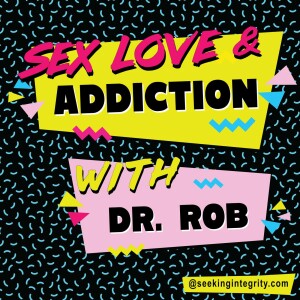
Thursday Jul 23, 2020
Trauma and the Twelve Steps with Dr. Jamie Marich
Dr. Jamie Marich is an EMDR therapy master trainer and the author of several books including, Trauma and the Twelve Steps and Trauma Made Simple. On this week’s show, Dr. Jamie discusses the healing process between the Twelve Step program and addressing your trauma. She also discusses her philosophy with the Twelve Step program and why it’s important to update the language in it to help people grow and recover.
TAKEAWAYS:
[3:00] Dr. Jamie has recently revised one of her books, Trauma and the Twelve Steps.
[4:00] People who have worked heavily in the trauma world had a low opinion about the Twelve Steps and vice versa. Why is that?
[5:45] Wounds can come in all shapes and sizes, but healing can take on all different forms.
[9:00] People use the Twelve Steps as commands, but Dr. Jamie has always seen it as suggested steps.
[13:35] The wound itself is not the issue in trauma. It’s how it gets addressed and healed that is.
[14:20] A lot of people think they have dealt with their trauma, but they really haven’t.
[19:35] Admitting your powerlessness over alcohol or your addiction does not mean you are a powerless person.
[21:45] We have to be willing to update the language with the times. The Twelve Steps was written in the 1930s.
[28:30] Trauma is never fully healed, but it does evolve.
[32:30] We have to validate ourselves, the reality of what’s happening, and we have to validate each other, and then we have to challenge it.
[35:35] Is it true we will never truly ‘thrive’ in life?
RESOURCES:
The Porn Panic: Is Porn a ‘Public Health Crisis’?
Cruise Control: Understanding Sex Addiction in Gay Men
Prodependence: Moving Beyond Codependency
Connect with Dr. Jamie: Dr. Jamie Marich
Dr. Jamie’s Book: Trauma and the 12 Steps, Revised and Expanded: An Inclusive Guide to Enhancing Recovery
Instituteforcreativemindfulness.com
QUOTES:
- “Why is trauma not the problem? The wound itself is not the issue. It’s how does it get addressed, how does it get healed, and what is the existing system of the person experiencing it.”
- “There’s a lot of people who think they’ve dealt with their trauma or it hasn’t affected them, but they really haven’t.”
- “A principle I teach in trauma-informed care is there is always a modification, and I think more people would be opened to the twelve steps if we allowed for that.”
- “After everything you’ve been through, it’s no wonder you’ve become an alcoholic, what are you going to do about it now?”
No comments yet. Be the first to say something!